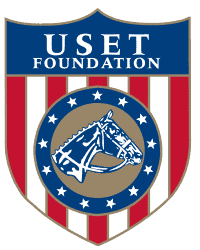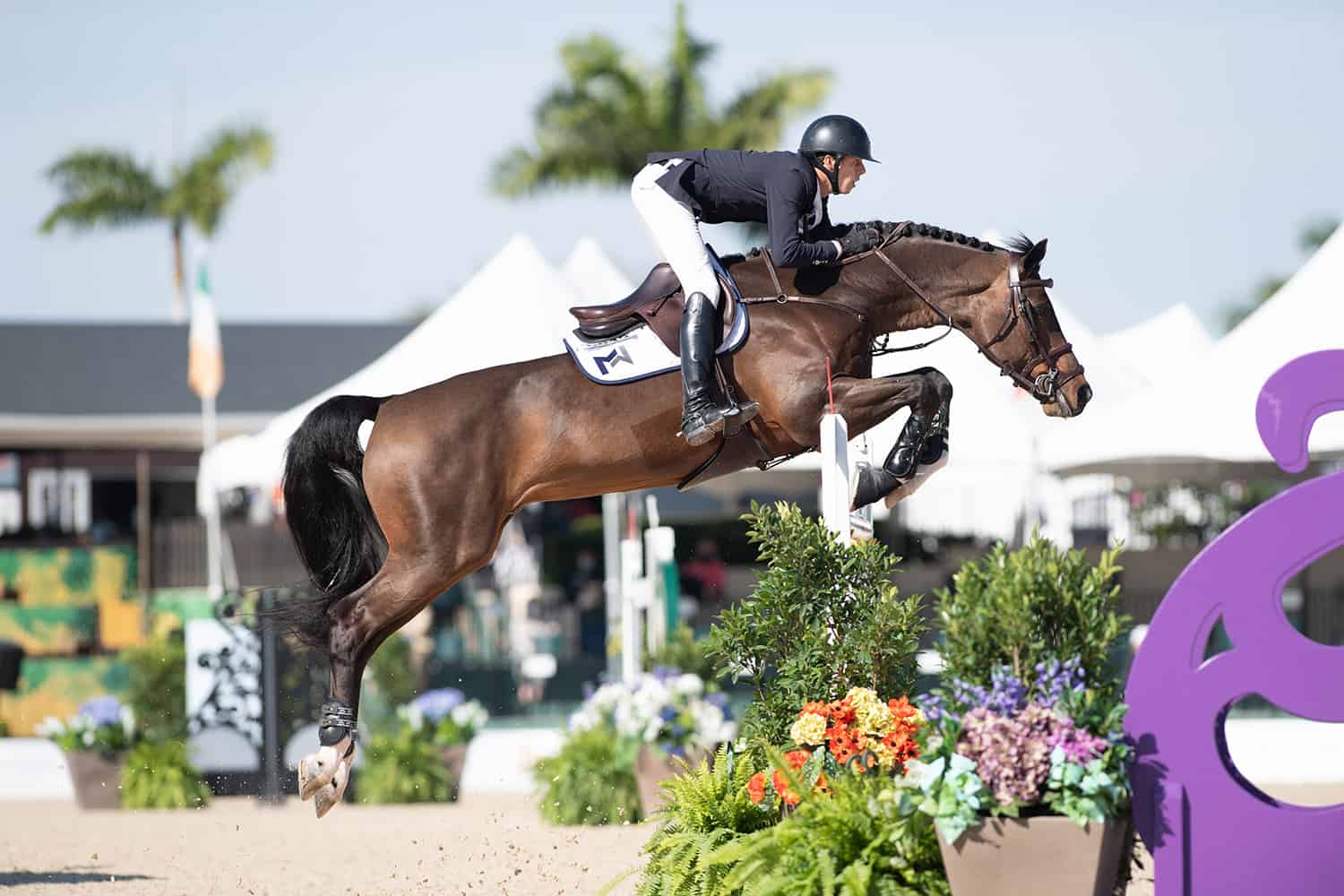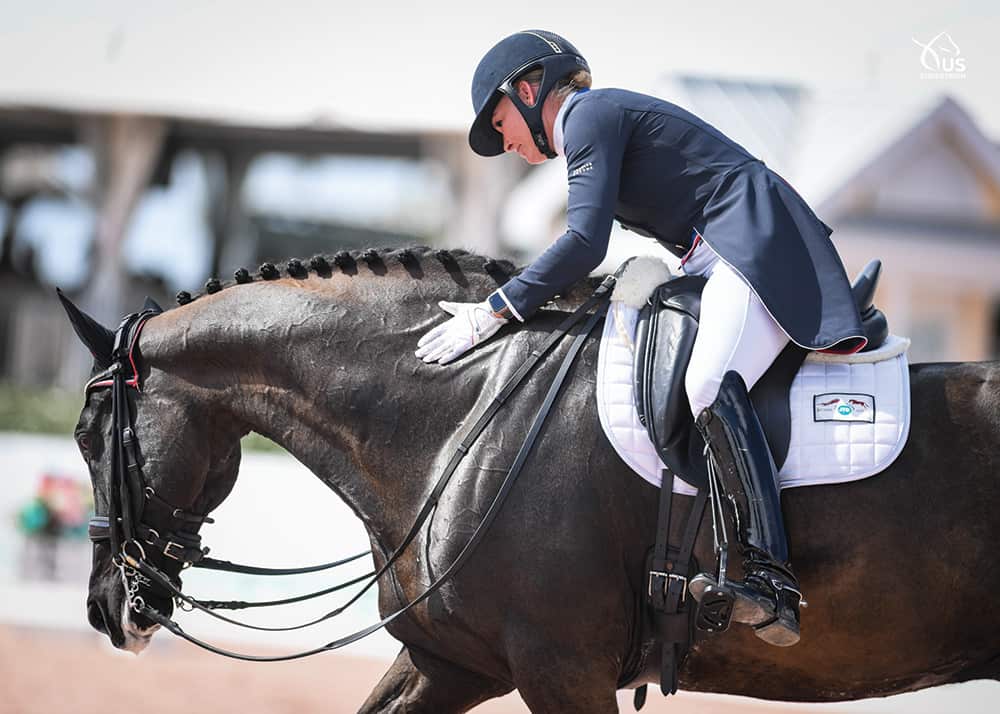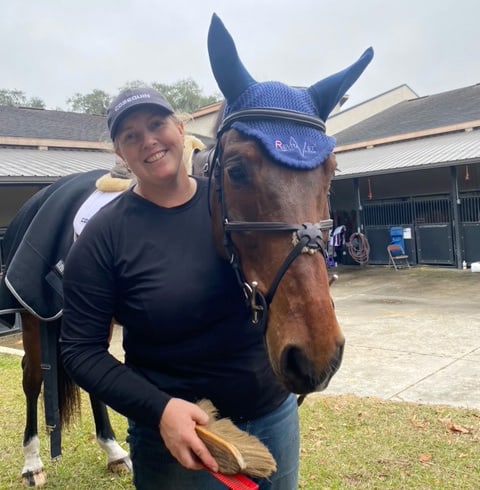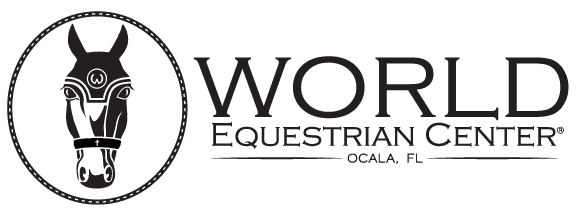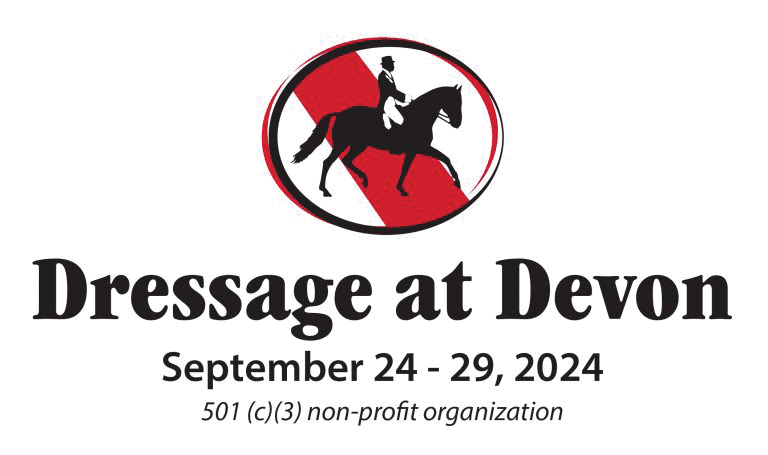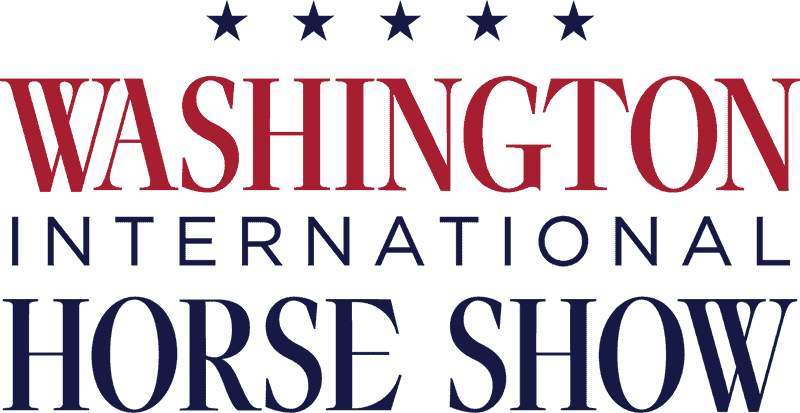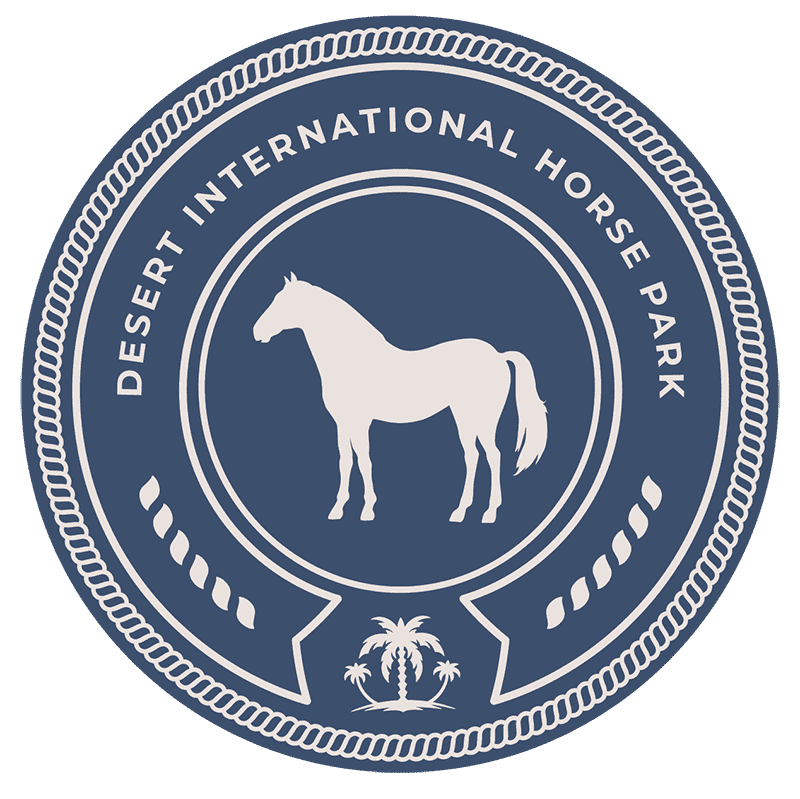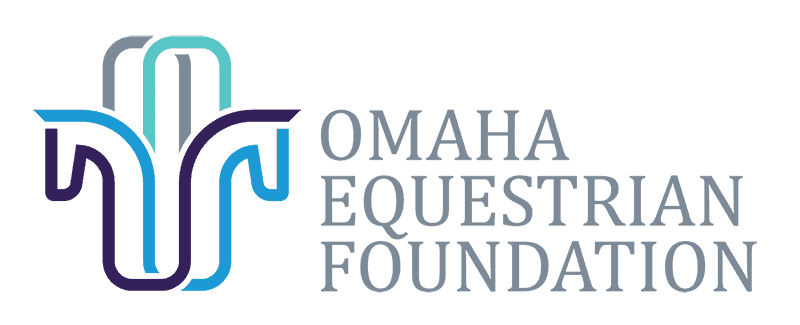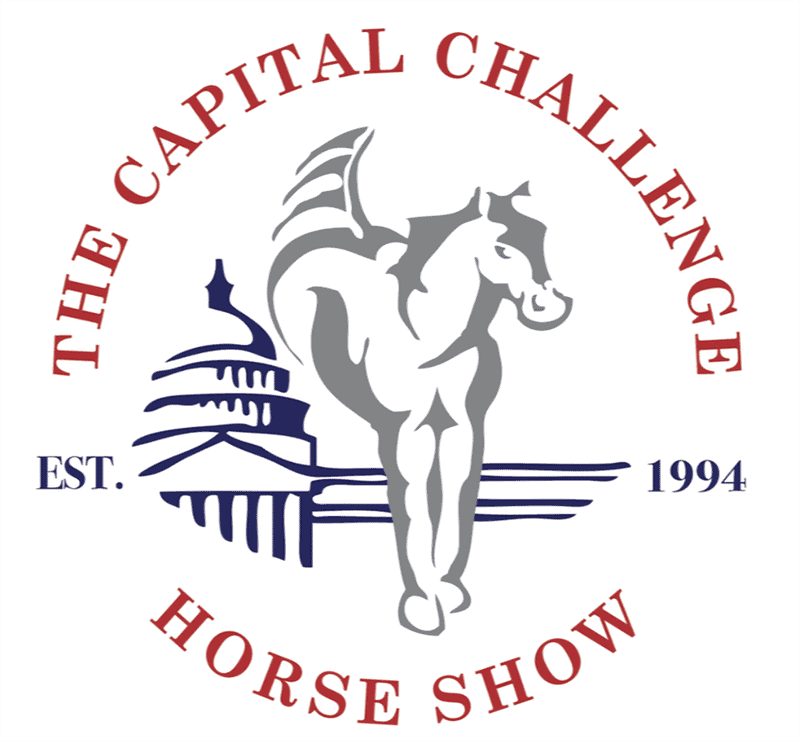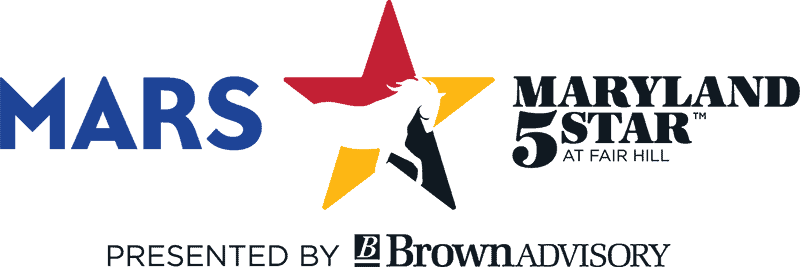When not running her own veterinary practice, Kate Shoemaker is preparing to seek Paralympic glory with her horse, Solitaer 40.
For Kate Shoemaker, staying busy is just a way of life.
She juggles her competitive para-dressage dreams with her work as an equine veterinarian — including running her own practice, Velocity Equine Sports Medicine — while she trains daily with the hope of nabbing a spot on the 2021 Paralympic Team headed to Tokyo in just a few months.
Learning to Persevere
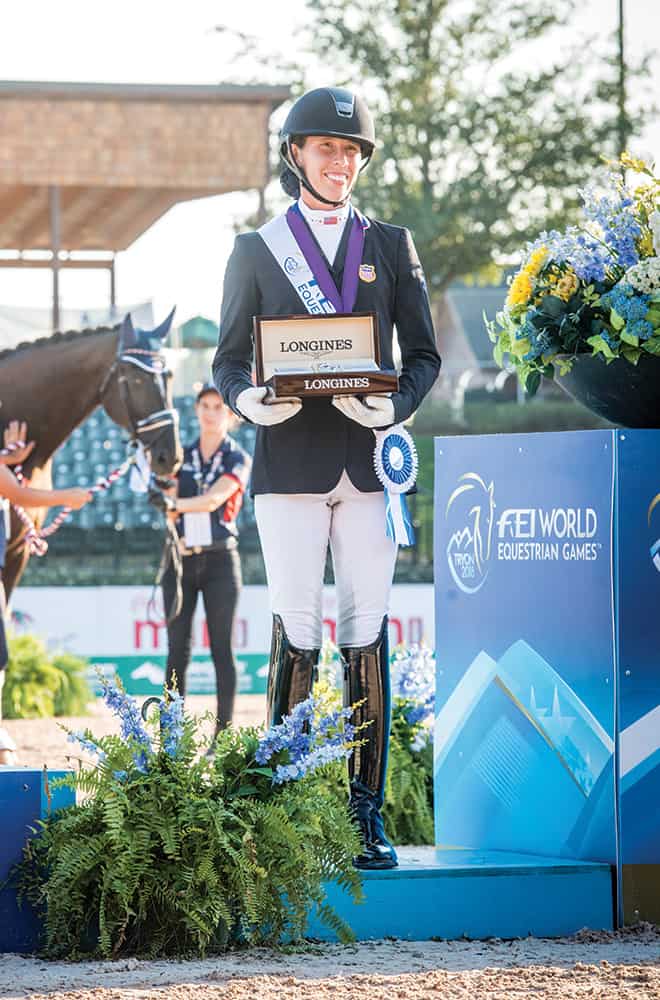
Kate made her first FEI World Equestrian Games (WEG) debut in 2018 with Solitaer 40, her Hanoverian stallion — but it wasn’t an easy journey to the podium.
Kate rides in Grade IV para-dressage competitions and suffers from white matter lesions that cause motor control dysfunction, muscle weakness and spasms on the right side of her body. She compensates for the loss of motion control in her ankle with a brace and uses special rein stops for additional control in the saddle.
Solitaer, aka Soli, has faced his own set of challenges. In 2017, the stallion broke his coffin bone into three pieces in what was “the most devastating day of my career,” says Kate. “When a dream you hold with so much passion comes crashing down so swiftly, the depression is equally swift and crashing.”For three months, Kate and her team anxiously waited to see if Soli would heal — and with a little bit of patience and luck, they learned that he’d beat the odds and healed exceptionally well with no effect on the joint.
From that moment, Kate and Soli worked tirelessly to regain their form and qualify for the 2018 World Equestrian Games. “The joy when we were named to the team was overwhelming — it was a day I will never forget.”
Balancing Business
In addition to her spectacular para-dressage career, Kate runs Velocity Equine Sports Medicine, a veterinarian practice in Wellington, FL.
“The equine veterinary industry is a 24/7 type of job,” Kate says, “but being self-employed allows me the flexibility to follow my riding dreams. It’s not always an easy balance but I always make time for training, on and off the horse.”
Kate works long hours to balance training and work. “I start in the morning training Soli,” she says. “He’s big and dark, so I try to keep him out of the afternoon sun here in Florida. But sometimes I get early morning emergencies that need attending to, so it’s not uncommon to see us out in the moonlight.”
Kate’s background in equine veterinary medicine provides her with a unique perspective as a dressage rider — including a keen ability to spot soreness or lameness in her horses.
“I was very fortunate to have extensive mentorship from veterinarians with outstanding lameness eyes early in my career,” Kate says. “Developing an eye for lameness takes years of meticulous practice and it goes hand-in-hand with developing an eye for dressage.”
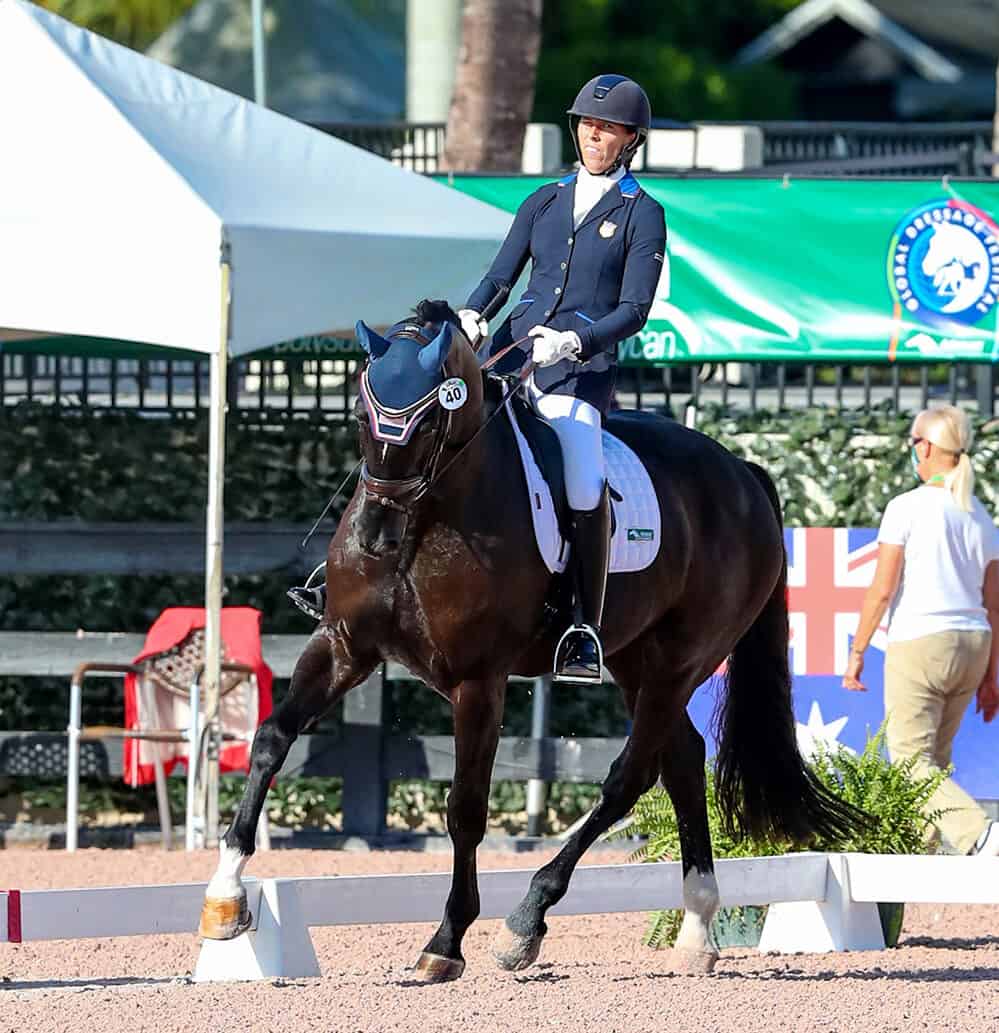
A Team of Support
To Kate, 2021 looks to be a strong year for the future of American para-dressage.
“It’s incredibly exciting to see the U.S. cracking the European stronghold in para-dressage,” she says. “This is going to make for a very exciting Tokyo and future championships as well. It may really come down to the wire to see where the medals will go.”
But to achieve success at the highest levels takes a team — including supporters of Team USA like you! “The financial aspects of the sport are really the hardest and often the most out of your control,” says Kate. “Not only does horse talent have a considerable cost, but the daily upkeep and competition costs rise every year.”
“The increased focus in developing para-dressage in the U.S. has paid off,” Kate says. “Several factors have played major roles, and all have only been possible due to the generous financial backing by USET Foundation donors.”
The accomplishments that have been made possible for the U.S. Para-Dressage Team include the addition of top para-dressage coach Michel Assouline, an increase in the number of international shows with top judges and additional funding for competitors attending major championships — including Kate herself.
Before the pandemic, Kate was awarded a $20,000 grant to compete in Europe — a dream of hers since she was a child. “Soli and I boarded a flight to Europe and came home much wiser and more seasoned. We learned so much about how he and I both manage international competition,” she says.
With this experience, Kate and Soli feel more than ready for a major championship. “Medals are now more than just a distant dream, but something just at our fingertips while we push the extra mile to earn them,” she says.
“My next goal is absolutely a Paralympic team. My focus is to continue training toward a potential gold medal performance, so that if we have the opportunity to represent the United States, we’re prepared to put our best foot forward.”
